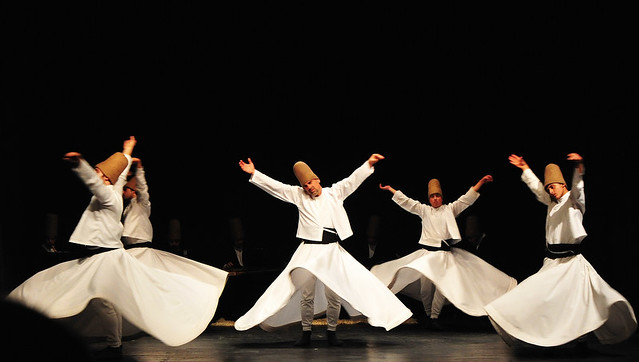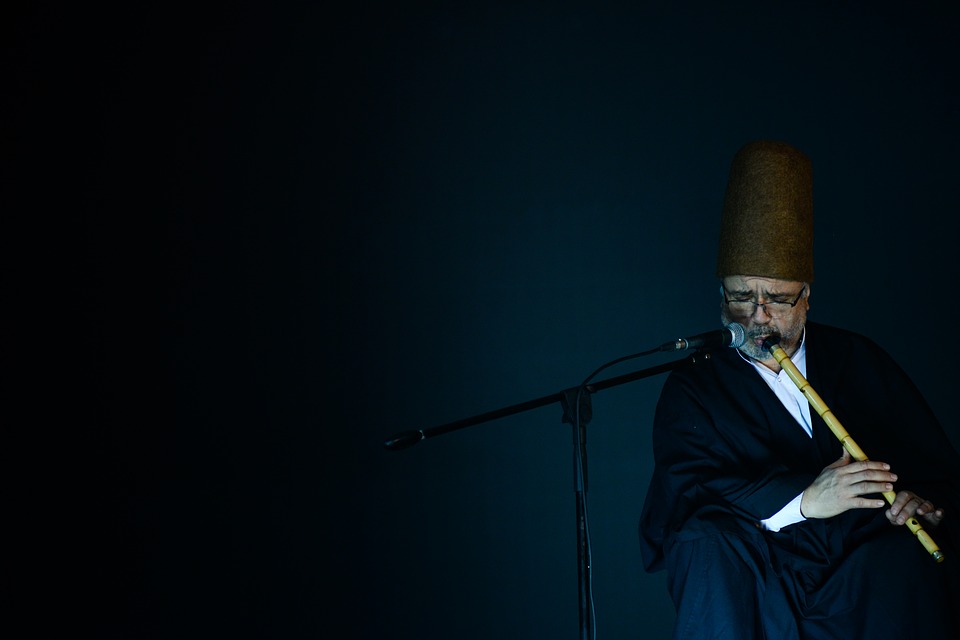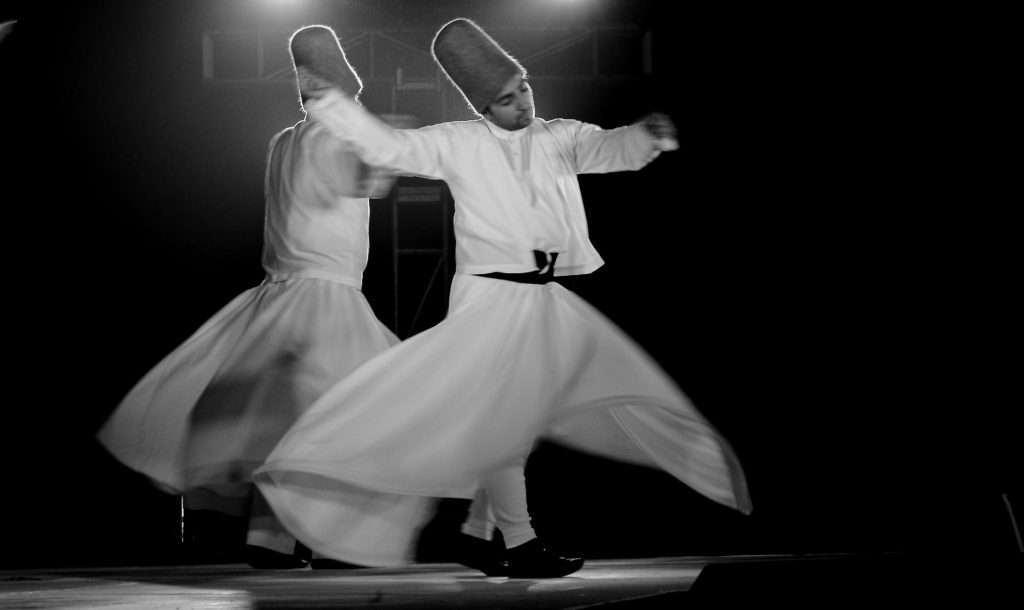By Debopriya Bhattacharya

Understood as a mystical form of Islam, Sufism is a school of practice that celebrates the intimate relationship between the seeker and the divine established through emotions and spirituality, understood as a deeply devoted and often arduous path that gives the seeker enormous rewards.
A mainstay of the social order for Islamic civilization, Sufism extends to more than the order founded by Rumi. Apart from practicing maintenance and visitation of shrines and tombs of deceased saints, waqfs or Islamic endowments, buildings intended for Sufi practice and passing on of the Sufi tradition, Sufism is known to have adapted to the local culture and belief with its spread throughout the Muslim world, thereby making it a popular practice.
However, the fact that the ideologies of Sufi tradition are embroidered by tales of miracles and mysticism, relegates it a sense of scepticism in the eyes of scientific analogies that are impatient with mysticism as stated in the research article, ‘Role and Importance of Sufism in modern world’. It then becomes equally important to see how the values propagated by the Sufi tradition need to be and are being survived in a world where it is ever diminishing.
In fact, when seen in the light of India, it is interesting to see how the nation is attempting to revive its Sufi tradition, especially through music, which otherwise was declining ever since the Partition of 1947.
Until 1947, Hindustani Classical music was home to a complex social universe. From being present in both Hindu Vaishnav temples and Sufi Islamic silisilas, this classical style of music incorporated acoustic elements from numerous sources aiming to convey the simplicity of Hindu Bhakti and Islamic Sufi poetry while maintaining a multi-lingual range.

It was only with the Partition of India that the various gharanas of the Hindustani Classical Music experienced shifts and changes. It not only led to the displacement of the gharana singers from their place of origin thereby creating an abyss but that “it has more to do with changes in the situations singers have to live with and the social system within which they have to work”, as stated in an article by TheWire.
Hence, the Sufiana music forms that came under the banner of Hindustani Classical Music, suffered in the tense political climate of India following the Partition of 1947, given how these forms are somehow read Islamicate in nature primarily due to the language and the imagery used.
It is with this regard, the past few decades have seen numerous attempts at reviving the Sufi tradition through Sufiana music which is known to have ‘deep spiritual roots that can be harnessed to propagate peace’, as the Kashmiri classical maestro, Ustad Mohammad Yaqoob Sheikh said in an interview with Religion Unplugged.
One of the most notable observations can be made in how the qawwali evolved to appeal to a fairly contemporary audience. From introducing stage as the qawwali performance space to allowing experimentation with contemporary fusion music, this form of Sufi music, as popularised by Nusrat Fateh Ali Khan, has found its way into the likes of the contemporary audience.
Pakistan’s Coke Studio production of ‘Rang’ performed by the qawwal Farid Ayaz, which experiments with the rhythm structure through the use of drums and bass guitar while retaining the traditional aspects, and A.R. Rahman’s filmi qawwalis in the style of traditional qawwalis are great examples that put to play the idea of bringing two independent music groups together.
The genre of Sufi-rock which was created by the Pakistani rock-band Junoon, has also seen a lot of productions in the Indian music world.
Combining elements of hard rock and traditional folk music with Sufi poetry is the idea that is played on when one talks of ‘Sufi-Rock’ as a developed genre.
Kailash Kher’s ‘Allah Ke Bande’ is one such iconic Sufi number that is recreated in a contemporary form while retaining the deep thought and meaning, thereby appealing to the contemporary audience, making the song meaningful and popular.

Besides, his band Kailasa’s project, Yatra (Nomadic Souls) is acclaimed for being their first international album that finds its roots in ancient Sufi poetry. Composed in Hindi, Urdu and other Indian dialects, the songs in this album revolve around the theme of love and beauty, the central ideas, one is likely to find in Sufism. Kher’s idea of an intense form of love is inspired by the mystical practices of Sufism which work with heart and ignite fervour of passionate love.
Sonam Kalra’s critically acclaimed Sufi Gospel Project is one such other initiative that is known for having produced an ever-evolving and an exploration of the genre that blends together the voices of language, religion and music culminating in one voice that is ‘the voice of faith’.
Rabbi Shergill’s chart-topper song ‘Bullah Ki Jaana’ is yet another example of the fusion of semi-Sufi and semi-folk music accompanied by Western arrangements. This song is a rendition of the kafi written by the 18th century Sufi poet Baba Bulleh Shah. Its lyrical composition speaks of the speaker’s constant search for God while experiencing a sense of loss of identity; an idea for which one can find roots in Sufism, about how truth of divine love can be found through direct personal experience of God.
Compositions of AR Rahman and other Indian Rock bands, namely Parvaaz, The Local Train and Indian Ocean have also contributed resourcefully in the revival of Sufi tradition which is completely owed to the Sufi music’s capability to embrace all kinds of music genres like trance music, rock, pop and EDM that have likened to the tastes of the contemporary audience.
It is in fact, rather interesting to note how amidst certain criticism of the evolved form of Sufi music, artists have been successful in conveying the purity and the mysticism exuded by the Sufi music, thereby leading to its widespread popularity. The serene verses of Sufi poetry fused well with classical western rock culture has produced a perfect combination of powerful and peaceful music, that is sure to stay.

